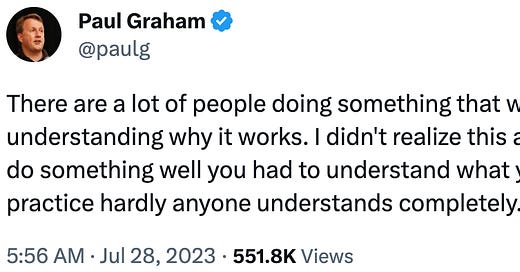Why are Nigerian scams filled with typos and grammatical errors? The smug may think the scammers are just ignorant, but the most convincing reason I've heard is that the typos and errors are there for a reason - they act as gatekeepers. They filter away the smarter or at least more skeptical targets and leave behind the truly gullible.
The scammers desire these targets and spend more attention and time on them because they are easy prey. After all, would you reply to an email request riddled with typos and grammatical errors?
Even with these filters in place, what is the hit rate for such scams? One in a hundred, or a thousand or even lower? But how many of these spam pieces are sent each day? Millions... even billions? Multiplying a low probability with a huge number still results in quite a few replies! Think of all the customer support time and resources this would take up to actually extract $$ from these victims! That's why you need a gatekeeper to let in only the truly susceptible.
When I retell this story to friends that have not thought about this interesting factoid, the reaction is invariably, "wow, those scammers are really smart"
It got me thinking, are these scammers really smart? Or could they have just stumbled into this winning error-laden tactic?
The more I think about it, the more I suspect it was a Darwinian process rather than originating from a clever but nefarious mastermind.
Imagine an evil but literate and skilled scammer. They write an idiomatic and grammatical scam email and send it to millions. As a result, they get inundated with prospective replies. Responding to the deluge, they find very few to "convert" (i.e. get scammed). Without a high payoff for the effort required, do they pivot to writing error-ridden scams or do they move on to some other more lucrative immoral deed? I'm inclined to believe the latter.
But that is obviously not the end of this woeful tale, right? Even if your evil venture to send out millions of scams fails, it's a very public endeavor and literally millions have seen your scam. What happens when a less literate and perhaps less intelligent evildoer is one of the recipients of this scammy letter? He may read the spam and think, "wow, deez iz eezee, even I can do it" Maybe, this recipient's first language isn't English and he "localizes" the spam email to his native Nigerian experience. And because of his circumstances, he and his copy-cats actually arrive at Nigerian email scams we know so well today
.
The path to how things come to be is rarely straightforward or easy to imagine. I am not at all confident that my speculations are true, but what I am pretty sure is that the real story behind how these scams developed are even crazier or harder to imagine.
Why is it this way? It's similar to why economists don't believe you'll find a stack of Benjamins lying on the street. The most intuitive and obvious ideas are the ones that a fortune 500 employee will have no problem pitching to their bosses or boards and receiving the ample resources to trying them out.
The low hanging fruit is where reality at the abstract level actually conforms to the reality at the concrete level. It's the conventional wisdom, it's what everyone expects and there are no surprises. And this low hanging fruit has been picked clean. The successful ones are of course already successful and dominated by the big companies. So, it's only the unsuccessful ones that may appear untried. And thus if you attempt to try out this obvious idea, you're likely to fail.
Most of us start out with a feeling or intuition. And the low hanging fruit is when these feelings or vibes are validated as we apply critical thinking and write about it. And when we are given the resources to implement these ideas that started from a feeling, they work out as planned.
Unfortunately, these are the ideas that have already been exhausted. So, we are left looking for cases when our intuition doesn’t hold up on further critical thinking, as in the case of “smart” Nigerian scammers. Or the many gaps that appear only when we execute on an idea, as in underestimating how much “customer support” you have to provide to execute on your scam.
This is why successfully starting something new is so incredibly hard. Almost every obvious idea has been tried before.
What are ways out of this conundrum? One direction is the Peter Thielian "what do you believe that no one else does?". But we also need to have epistemic humility as Feynman describes so well
These are perhaps contradictory ideas that I’m still mulling/figuring out and would like to develop further in a future piece but I’ll like to end with two broader takeaways:
Most things we try out aren't going to be successful, so coming up with a set up or platform to try out many new experiments quickly and cheaply is critical
Learn to think in contrarian ways and to be aware of groupthink. Learn to hold many possibly contradictory beliefs in my puny brain. Whatever you may think of Elon Musk, I think this practice explains a lot of his behavior
This is what I'm practicing in recounting my fanciful speculations behind Nigerian scams. Hope you enjoyed the musings!







My partner is obsessed with elaborate indian/nigerian scams - his version of "fun" youtube rabbit holes. LOL! It's fascinating that there is a whole method to all this madness!